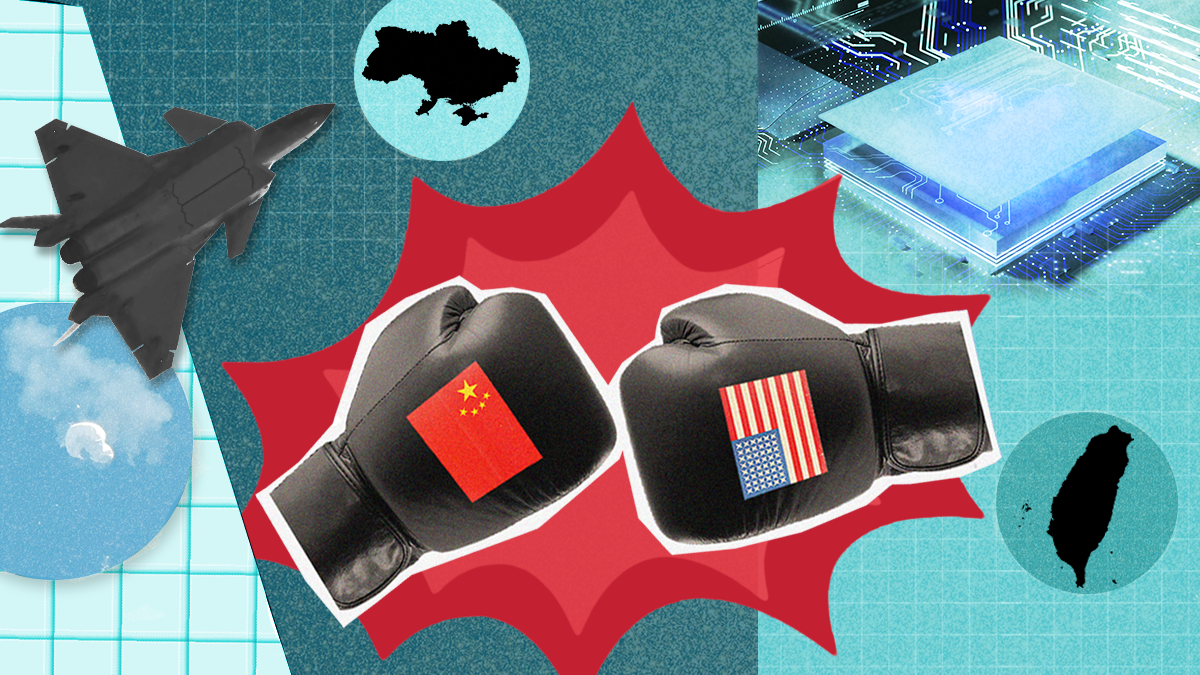June 02, 2023
A steady stream of headlines today suggests that a metastasizing confrontation between China and the United States has put an end to what we’ve known as globalization, the flow of goods, services, and money across international borders at unprecedented speed and scale.
It’s true that US-China relations have become more contentious than at any time since (at least) the Tiananmen Square massacre in 1989, and every time it appears things might improve, some new revelation or provocation has officials in Washington and Beijing threatening some new action. High tariffs between the two countries for all kinds of goods have remained in place for the past five years.
It’s also true that the US and China are fragmenting the flow of the globalized economy by remaking supply chains to reduce dependence on the other side for critical resources and products where they believe a shortage might threaten their national security. Yes, competition in the tech sector, especially for products like computer chips, has created an increasingly disruptive rivalry.
We also cannot ignore the reality that China’s President Xi Jinping has expressed some limited support for Russia and its president at a time when Russian forces occupy territory inside NATO-backed Ukraine and are killing Ukrainian civilians.
Washington and Beijing clearly have an increasingly contentious relationship that’s getting worse, and the globalization we’ve known over the past three decades is fragmenting in some ways.
And yet … did you know that US-China trade volumes set a record in 2022?
In the 10-plus years that Xi Jinping has ruled in China, the share of China’s exports headed for the United States, Europe, and Japan has barely moved at all. Whatever sympathy Xi has for Putin, he appears to believe that economic growth is crucial to the future of China – and its ruling party – and that economic growth depends on pragmatic relations with America and its most prosperous allies.
It’s crucial too that other wealthy countries continue to see the necessity of strong economic relations with China. US-friendly democracies in Europe, Japan, South Korea, Australia, and Canada remain closely aligned with Washington on security questions, but none of their leaders have taken action that suggests they believe China can be economically isolated as Russia has been.
In short, there is recognition in the United States, China, Europe, India, and every country that profits from a globalized economy that no one can afford a 20th-century-style division of the world into two blocs separated by a wall made hastily from cheap East German cement. Globalization may retreat for now into a surging number of regional trade deals, as we’ve seen over the past 15 years, but it has become too big to fail, and those in positions of power know the headlines don’t tell the full story.
That’s our assertion, but we’re also watching areas of the US-China conflict – and potential confrontation – that are genuinely disruptive.
Have a look and tell us what YOU think. Write to us here.From Your Site Articles
- Ukraine dam sabotage: not enough evidence to speculate - GZERO Media ›
- US-China: Commerce Secretary Raimondo visit a success - GZERO Media ›
- US CEOs too influential on China policy, says Rahm Emanuel - GZERO Media ›
- Ian Explains: How is America's "Pivot to Asia" playing out? - GZERO Media ›
- The complicated US-Japan relationship - GZERO Media ›
- Where the US & China agree - and where they don't - GZERO Media ›
- Is President Trump's Russia pivot a win for China? - GZERO Media ›
- Will America's global retreat open new doors for Beijing? Insights from Bill Bishop - GZERO Media ›
- Is the US on the brink of a cold war with Russia and China? - GZERO Media ›
- US aims to maintain military advantage over China by controlling tech - GZERO Media ›
More For You
- YouTube
In this Quick Take, Ian Bremmer weighs in on the politicization of the Olympics after comments by Team USA freestyle skier Hunter Hess sparked backlash about patriotism and national representation.
Most Popular
Bad Bunny during the Super Bowl LX halftime show press conference at Moscone Center.
Kirby Lee-Imagn Images
100 million: The number of people expected to watch the Super Bowl halftime performance with Bad Bunny, the Puerto Rican superstar and newly minted Album of the Year winner at the Grammys.
Alysa Liu of Team USA during Women Single Skating Short Program team event at the Winter Olympic Games in Milano Cortina, Italy, on February 6, 2026.
Raniero Corbelletti/AFLO
Brazilian skiers, American ICE agents, Israeli bobsledders – this is just a smattering of the fascinating characters that will be present at this year’s Winter Olympics. Yet the focus will be a different country, one that isn’t formally competing: Russia.
What We’re Watching: Big week for elections, US and China make trade deals, Suicide bombing in Pakistan
Feb 06, 2026
Japanese Prime Minister Sanae Takaichi, president of the Liberal Democratic Party (LDP), appeals for a candidate during a street speech of the House of Representatives Election Campaign in Shintomi Town, Miyazaki Prefecture on February 6, 2026. The Lower House election will feature voting and counting on February 8th.
The Yomiuri Shimbun
Japanese voters head to the polls on Sunday in a snap election for the national legislature’s lower house, called just three months into Prime Minister Sanae Takaichi’s tenure.
© 2025 GZERO Media. All Rights Reserved | A Eurasia Group media company.
